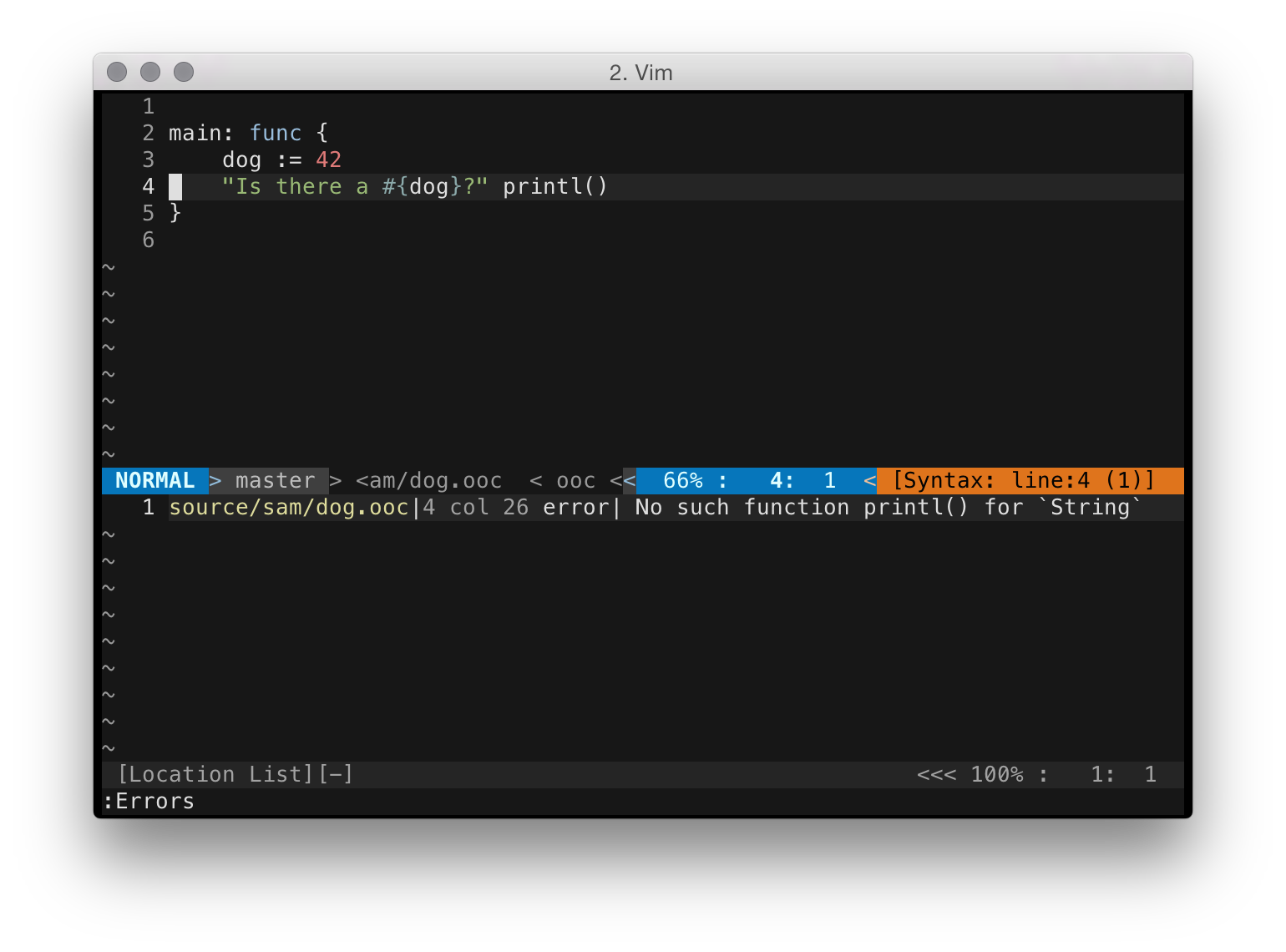Concepts
rock is nice to build entire projects, but the downside is that checking individual files is tricky. sam solves most of that problem.
Let’s say you have the following directory structure:
.
├── source
│ └── foobar
│ └── package
│ └── foo.ooc
│ └── bar.ooc
└── foobar.use
Running rock --onlyparse source/foobar/package/foo.ooc wouldn’t work, because
it wouldn’t be compiled in the context of the foobar project (the source path
would be set to source/foobar/package instead of source)
sam solves that with its check command, by walking up the file tree until
it finds an .use file that contains the .ooc file it was passed by argument.
Then, sam writes a custom .use file in its cache directory, with Main
set to, in our case, foobar/package/foo, and runs rock.
Usage
Simply run:
sam check /absolute/path/to/any/file.oocAnd check the return status. If the check goes well, sam will not output anything by default (except in verbose mode). If it goes wrong, it will relay rock’s output.
The --mode argument lets sam know how deep the check should be:
-
--mode syntaxonly makes sure the code is valid ooc syntax -
--mode check(default) will catch undefined symbols, missing imports, etc. -
--mode codegen(rarely needed) makes sure rock can actually generate C code from it
Integration
sam check is designed to be integrated with code editors. An example of
that can be found in ooc.vim, where a sam-based syntastic checker is
implemented.
